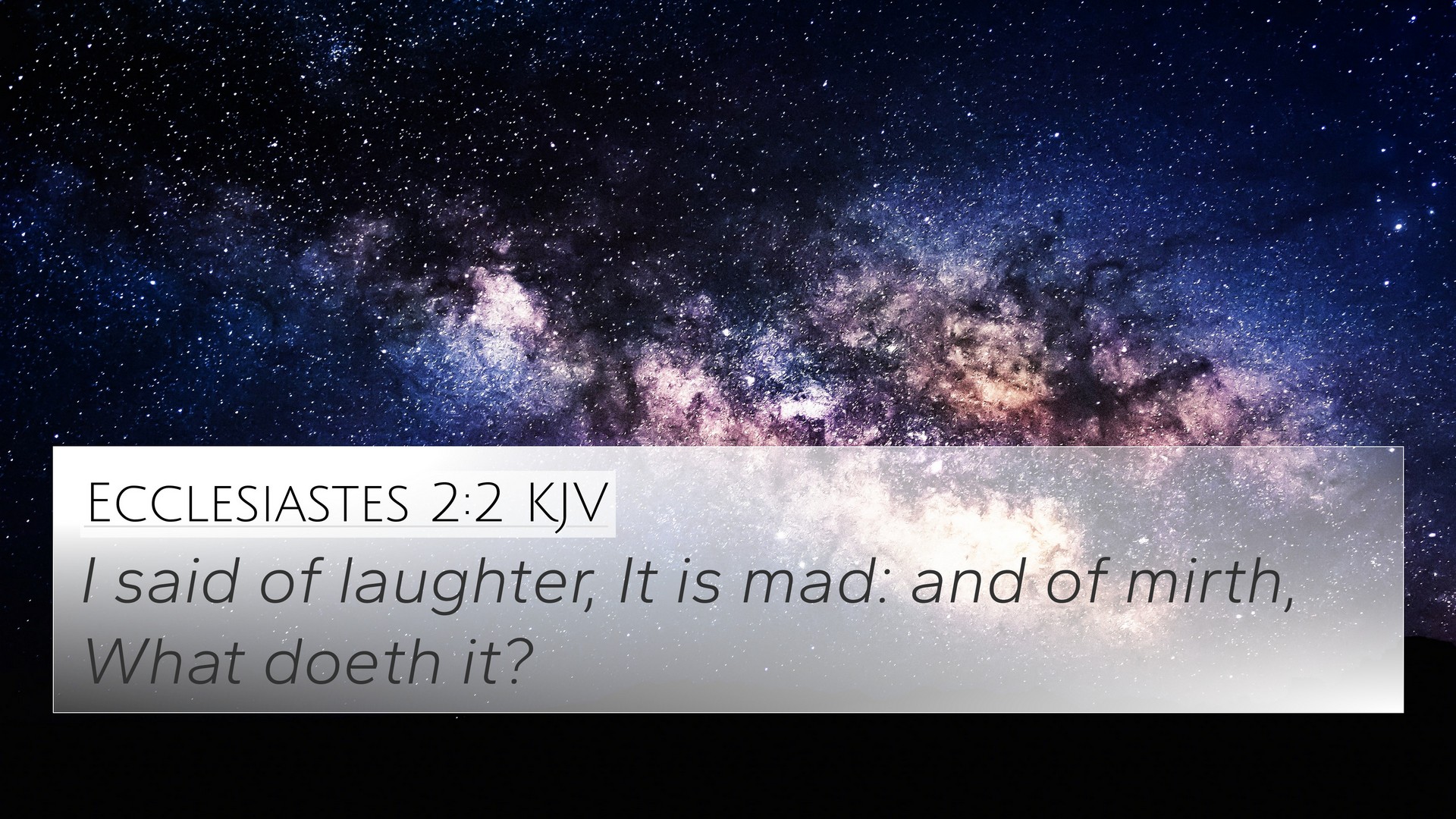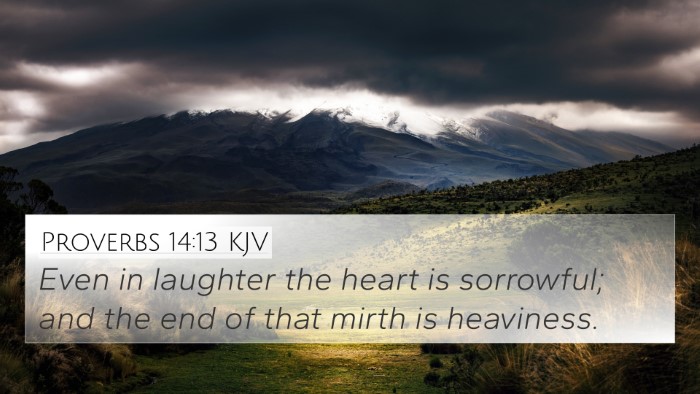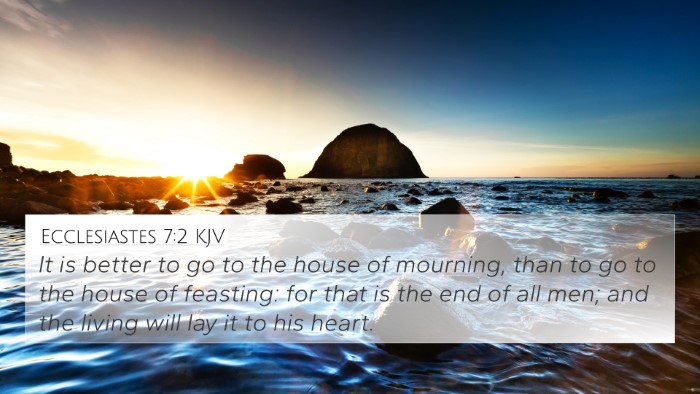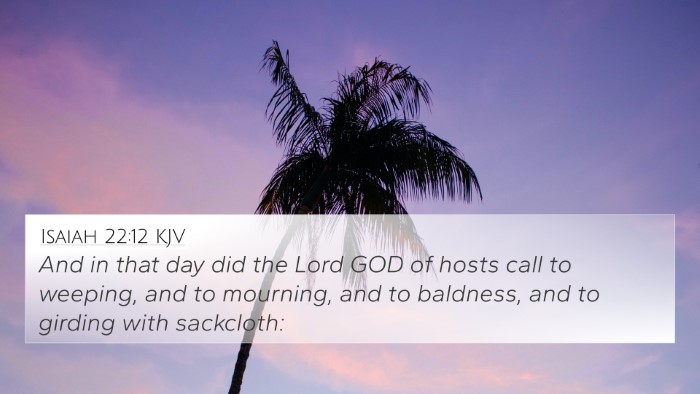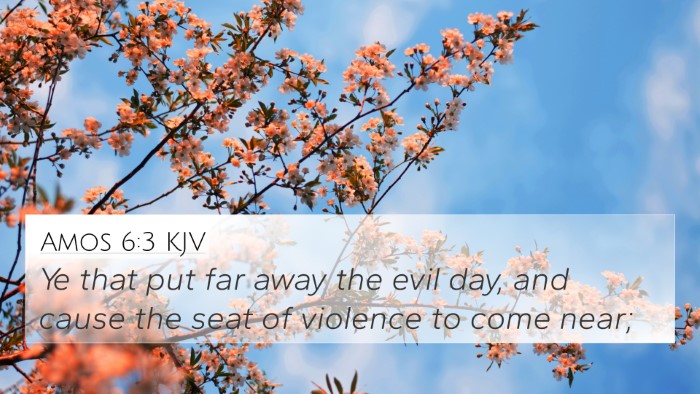Understanding Ecclesiastes 2:2
Verse: "I said of laughter, It is mad: and of mirth, What doeth it?" (Ecclesiastes 2:2)
Ecclesiastes 2:2 reflects the writer's exploration of the nature of pleasure, laughter, and joy. The conclusion reached is one of skepticism towards these experiences, suggesting that they may be without lasting value or meaning.
Commentary Insights
-
Matthew Henry:
Henry highlights the vanity of worldly pleasures. He interprets the verse as the Preacher's realization that laughter and mirth can often mask deeper existential issues. True wisdom recognizes that while these experiences can be enjoyable, they ultimately fail to provide lasting satisfaction.
-
Albert Barnes:
Barnes emphasizes the idea that joy and laughter are fleeting distractions from life's serious undertakings. He notes that the Preacher’s witticism regarding laughter indicates a thoughtful approach to life, where moments of joy are often overshadowed by the reality of human suffering and despair.
-
Adam Clarke:
Clarke examines the contrasting nature of joy and despair in this verse. He posits that the Preacher challenges the reader to assess the value of mirth and laughter in the light of their ephemeral nature, suggesting that one should seek deeper meanings beyond mere amusement.
Thematic Connections
This verse can be linked to various themes present throughout the Bible. Here are some cross-references to consider:
- Proverbs 14:13: "Even in laughter the heart may ache, and rejoicing may end in grief."
- Job 21:12: "They sing to the timbrel and harp, and rejoice at the sound of the pipe."
- Psalms 126:2: "Our mouths were filled with laughter, our tongues with songs of joy..."
- Ecclesiastes 3:4: "A time to weep and a time to laugh..."
- Isaiah 22:13: "But instead, there is joy and revelry, slaughtering of cattle and killing of sheep, eating of meat and drinking of wine!"
- Luke 6:25: "Woe to you who laugh now, for you will mourn and weep."
- Matthew 5:4: "Blessed are those who mourn, for they will be comforted."
Inter-Biblical Dialogue
The connections between these verses offer a deeper theological understanding of joy, laughter, and the human experience. When exploring Ecclesiastes 2:2, consider the greater narrative of suffering and joy across the scriptures. This verse and its cross-references may serve as a reminder of the Bible's overall message regarding the transience of worldly pleasures.
Practical Applications
When studying Ecclesiastes 2:2 and its connections to other scriptures, one can utilize various tools for Bible cross-referencing. Here are several methods and resources to enhance your study:
- Bible Concordance: A comprehensive tool to find similar themes and topics across the Bible.
- Bible Cross-Reference Guide: Helps in identifying related verses quickly.
- Cross-Reference Bible Study: Engage in thematic studies linking multiple verses together.
- Bible Reference Resources: Utilize online databases and printed materials to find thematic connections.
Conclusion
Ecclesiastes 2:2 calls readers to reflect on the nature of joy and laughter within the broader scope of human experience. It prompts us to consider the value of our pursuits and the ultimate purpose behind them. By engaging with this verse and its connections, one can deepen their understanding of the scriptural conversation about the complexities of life.
